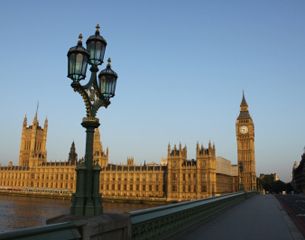
Leaseholders now have additional legal protections which mean they no longer and have to pay costs associated with making their homes safe.
These protections are contained within the new Building Safety Act, which comes into force today having received royal assent.
These additional protections come in the wake of the Grenfell fire and subsequent cladding scandal. This saw some developers asking leaseholders to pay to fix fire-safety defects in their building’s cladding.
This new act covers leaseholders living in buildings above 11 meters tall or with at least five storeys. It does not just cover cladding issues but offers protection against paying any bills that are needed to ensure the property meets regulated safety standards.
Stronger measures in the act include new powers for the Secretary of State to restrict irresponsible developers’ ability to build new homes, an extension of the Building Safety levy, worth an estimated £3 billion and improving building owners’ rights to launch legal action against developers.
The Local Government Association housing spokesperson Darren Rodwell said: “The LGA has long argued that blameless leaseholders should not have to pay for fire safety defects resulting from 20 years of regulatory failure and industry malpractice.
“We are pleased the Government has listened, although we remain concerned that the measures announced today will be insufficient to protect all leaseholders who own the freeholds of their blocks.”
He said the government now needs to take responsibility for that failure by ensuring social housing tenants have the same protection that it has offered homeowners.
“If councils and housing associations are not protected from the cost of fixing dangerous cladding and other fire safety defects those costs will inevitably fall on rent-payers. The Government must also exempt social housing from the forthcoming levy.”
The Royal Institute of Chartered Surveyors said that whilst this act may not have delivered what everyone had hoped for, it marked a “positive step forward in resolving the building safety crisis, providing greater protections for leaseholders and delivering a new building safety regime.”
It said with the hundreds of clauses in the Bill, there were items that “need clarification through secondary legislation”.
RICS said the industry would need a “clear brief” from the government on the timeline moving forward, such as when the legislation would be ready and when consultations will take place.
Secretary of State for Levelling Up, Housing and Communities Michael Gove said: “Today marks a major turning point for building safety in this country, as we introduce a tough new regime to make homes safe and help rid the sector of bad practice once and for all.
“Hundreds of thousands of innocent leaseholders now have the legal protection they rightly deserve, freeing them from a financial burden they should never have faced.
“I’m pleased that most of the largest developers have agreed to play their part in solving this.
“But there is more to do – we are focusing intensively on work with lenders to unlock the mortgage market and empower leaseholders to take their next step on the property ladder, and we will remain vigilant if anyone fails to act on the pledges they have made.”
The Secretary of State has written to freeholders setting out that these new rules means that leaseholders should not receive large bills for building safety repairs. The letter stresses that they will be now acting illegally if they issues such bills.



